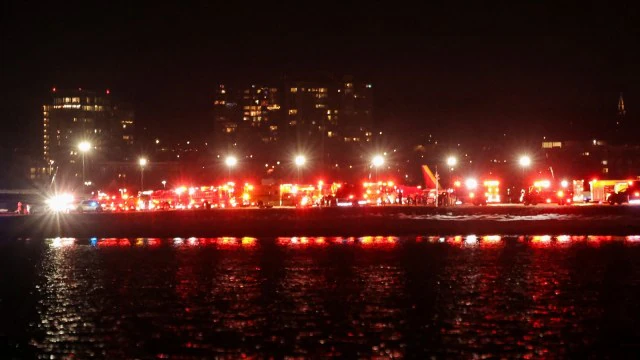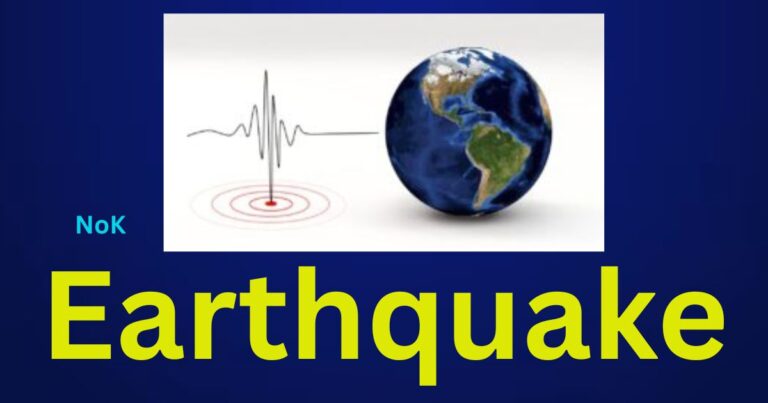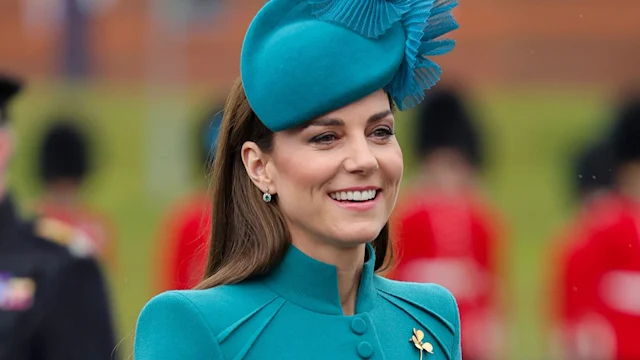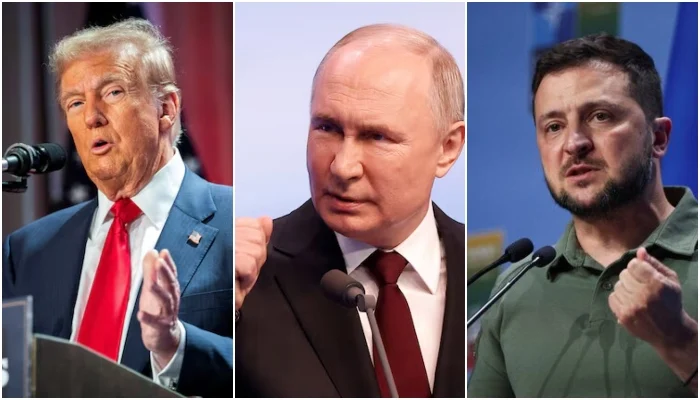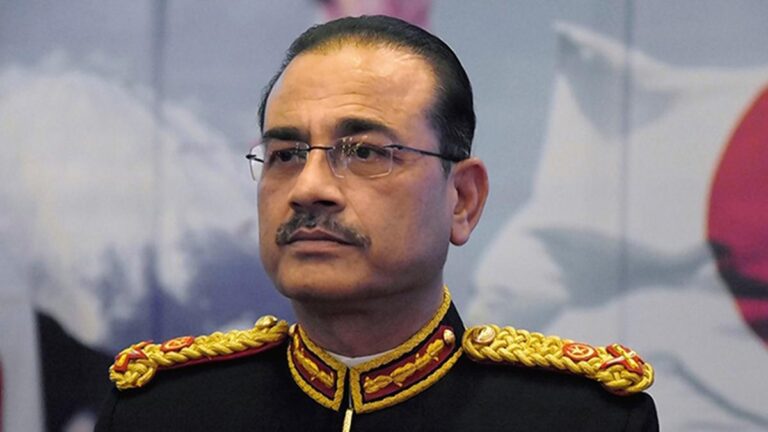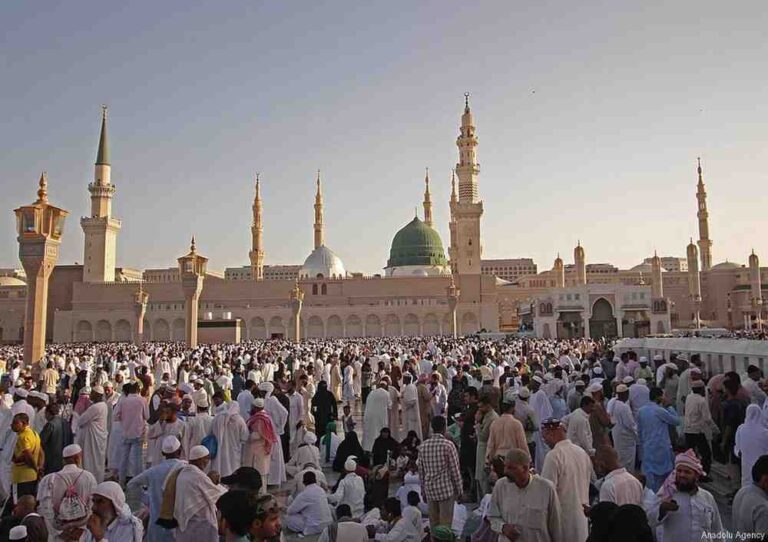Columbia Graduate Mahmoud Khalil Arrested by ICE Amid Pro-Palestine Protests, Sparking Outrage
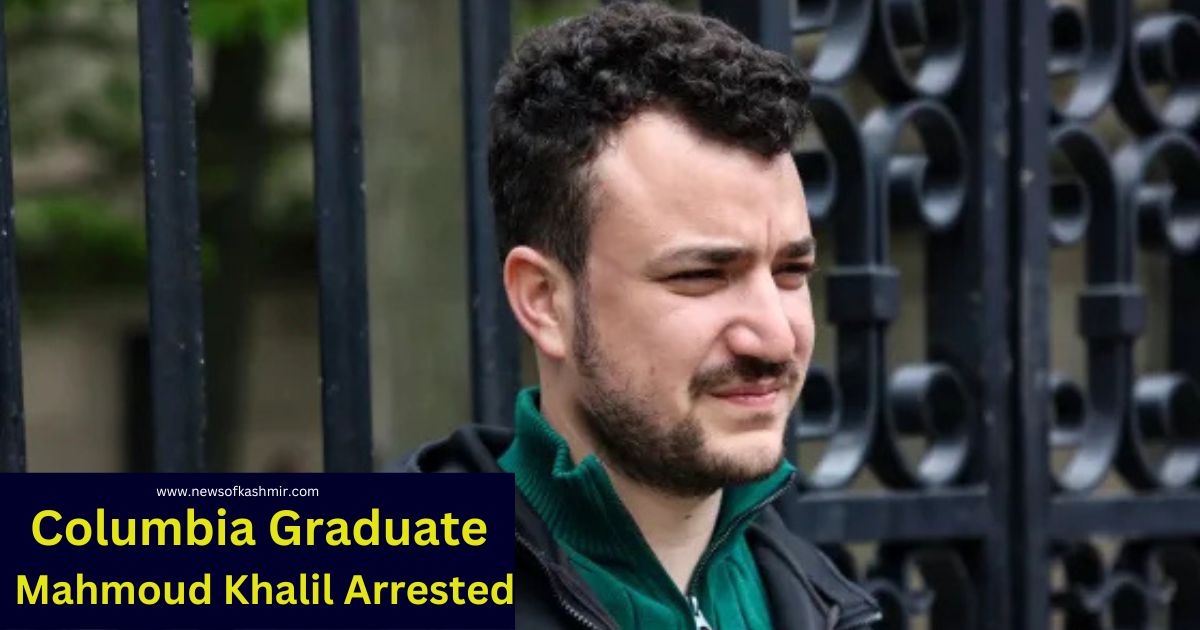
The recent arrest of Columbia University graduate Mahmoud Khalil by U.S. Immigration and Customs Enforcement (ICE) has ignited a wave of controversy, raising significant concerns about civil liberties, the right to protest, and the state of democracy in the United States. Khalil, a permanent U.S. resident and an Algerian citizen of Palestinian descent, was detained after leading pro-Palestine protests at his alma mater. The event has prompted widespread condemnation from activists, human rights organizations, and legal experts, who argue that his detention is a politically motivated crackdown on dissent.
Click Here To Follow Our WhatsApp Channel
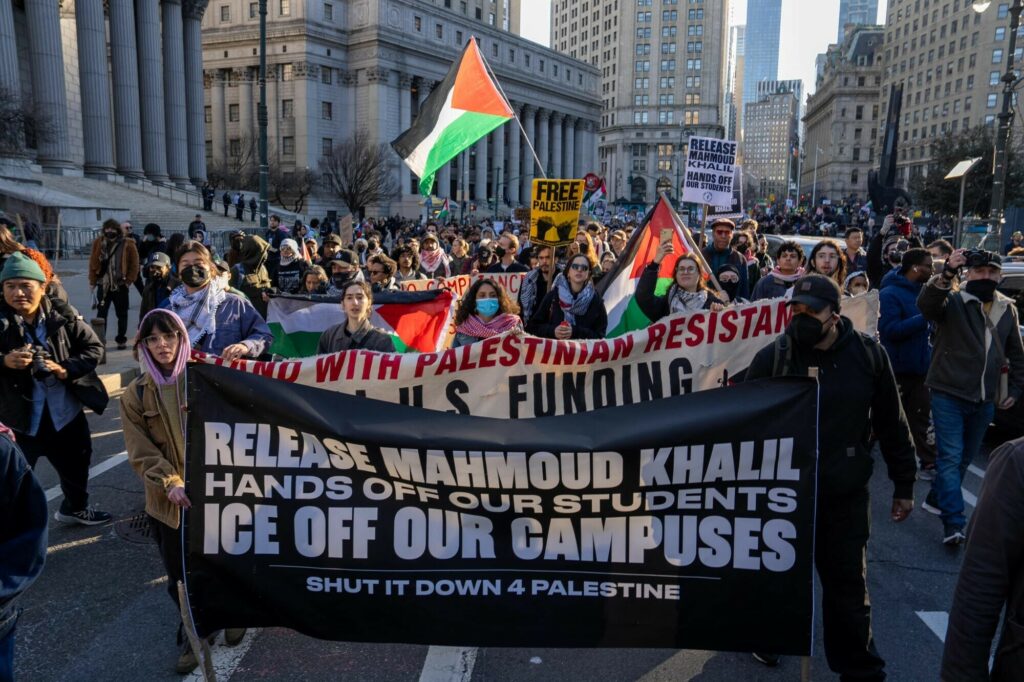
The Arrest of Mahmoud Khalil
On the evening of his arrest, Mahmoud Khalil and his wife, who is eight months pregnant, were entering their university-owned apartment when ICE agents forced their way inside. According to multiple sources, the agents initially claimed that Khalil’s student visa was being revoked, but upon realizing he was a green card holder, they declared that his permanent residency had been rescinded. Despite his legal status, Khalil was detained and later transferred to a facility in Louisiana, far from his home in New York.
ICE, along with the Department of Homeland Security (DHS), justified Khalil’s arrest by alleging that he had “led activities aligned with Hamas.” However, no evidence has been publicly presented to substantiate these claims. This has fueled concerns that the arrest is less about national security and more about silencing voices critical of the U.S. government’s policies regarding Israel and Palestine.
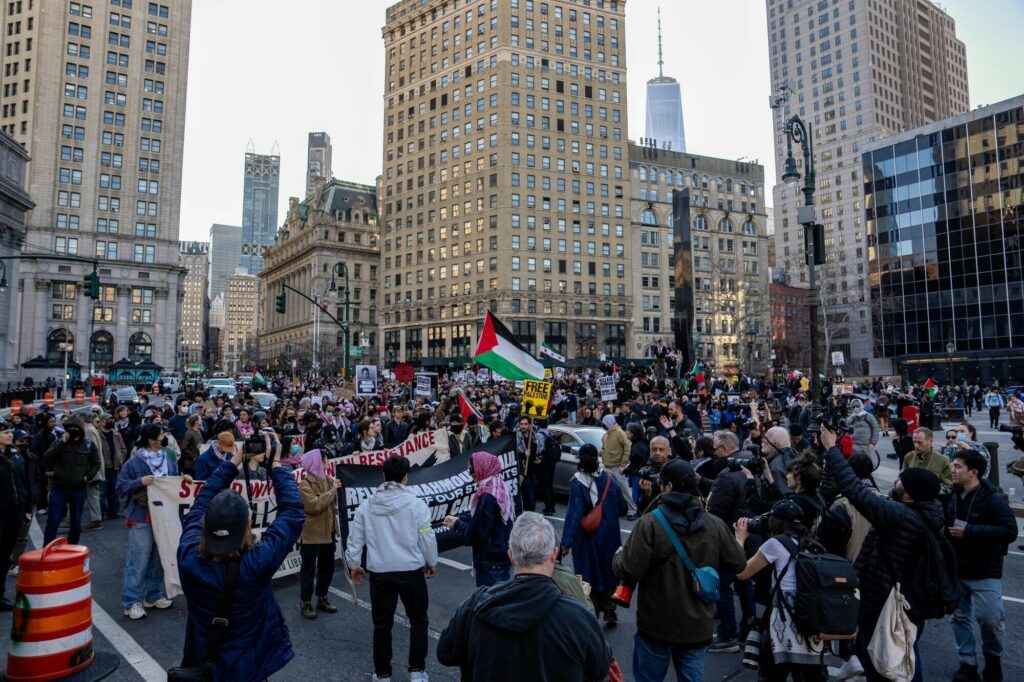
Protests and Outrage Following the Arrest
The news of Khalil’s arrest quickly spread, leading to large-scale protests in New York and other cities. Over 1,000 demonstrators gathered in front of Columbia University to denounce the government’s actions. Among them were students, faculty members, civil rights activists, and politicians who criticized the move as an attack on free speech and a violation of constitutional rights.
“This was essentially a kidnapping,” said one protester. “It’s terrifying to think that simply speaking out against government policies can lead to your arrest and deportation. This sets a dangerous precedent.”
The American Civil Liberties Union (ACLU) strongly condemned the arrest, calling it “unprecedented, illegal, and un-American.” Ben Wizner, director of the ACLU’s Speech, Privacy, and Technology Project, stated, “The government’s actions are obviously intended to intimidate and suppress speech on one side of a public debate. This is a direct assault on our First Amendment rights.”
Legal Challenges and Temporary Halt on Deportation
Khalil’s legal team swiftly challenged the government’s move, filing an emergency petition to halt his deportation. On Monday, Judge Jesse Furman of the Southern District of New York issued an order temporarily blocking any deportation proceedings. The ruling states that Khalil cannot be deported “unless and until the Court orders otherwise.”
Lawyers representing Khalil also requested that he be returned to New York, arguing that the government deliberately moved him to Louisiana to make it harder for him to access legal representation. “This is an attempt to isolate him and prevent him from mounting a proper defense,” said one of his attorneys.
A preliminary hearing is set to take place, during which Khalil’s legal team will argue that his arrest and detention violate his constitutional rights. Legal experts have pointed out that while green card holders can be deported under certain circumstances, such as criminal convictions, Khalil has no known criminal record. His only “offense” appears to be his activism and participation in protests.
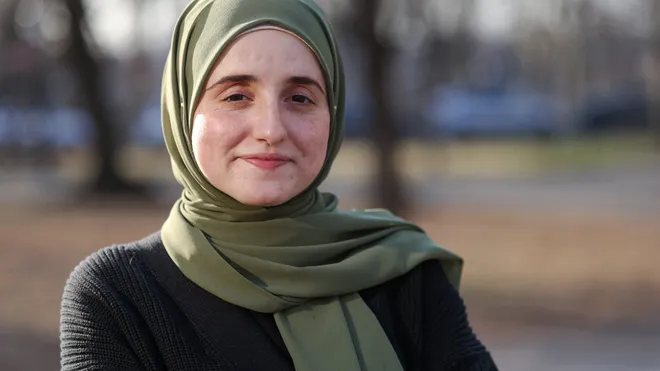
Wife of Mohammad Khalil
Political Reactions and Trump’s Involvement
Former President Donald Trump, who was recently inaugurated for a second term, took to his social media platform, Truth Social, to boast about Khalil’s arrest. “This is the first arrest of many to come,” he declared. “We know there are more students at Columbia and other universities across the country who have engaged in pro-terrorist, anti-Semitic, anti-American activity, and the Trump Administration will not tolerate it.”
The statement alarmed civil rights advocates, who fear that Khalil’s arrest is the beginning of a broader crackdown on student activism. “This is an attempt to criminalize dissent,” said Representative Ilhan Omar. “The Trump administration is using the legal system to silence voices that challenge their policies.”
Congresswoman Rashida Tlaib also spoke out against Khalil’s detention, calling it “straight out of the fascist playbook.” “Criminalizing dissent is an assault on our First Amendment rights,” she tweeted. “Revoking someone’s green card for expressing their political opinion is illegal. Protesting genocide is not a crime.”
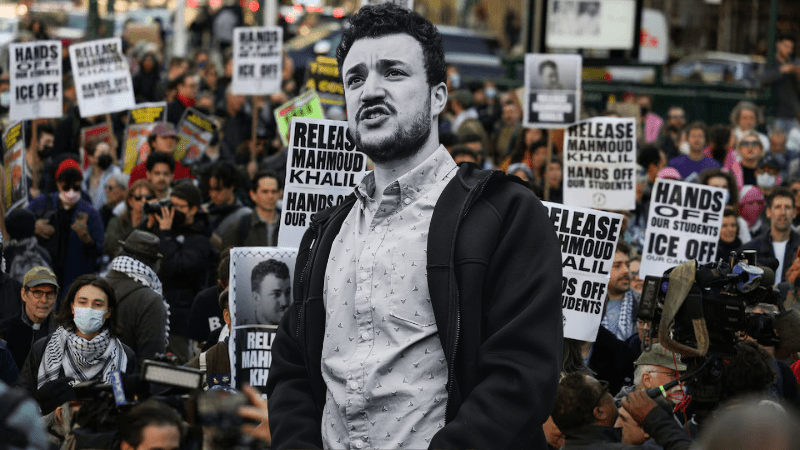
A Chilling Effect on Student Activism
Many students and activists fear that Khalil’s arrest is meant to intimidate others from engaging in protests. “If they can do this to him, they can do it to anyone,” said one Columbia University student. “We’re being warned that if we stand up for what we believe in, we could be next.”
Alana Hadid, a Palestinian-American activist and sister of supermodels Gigi and Bella Hadid, echoed this sentiment in a video posted to social media. “They can take you right now, no charges, no trial, no explanation—just gone,” she said. “If you think that can’t happen in America, let me remind you that it already has.”
Historically, student activism has played a crucial role in shaping social and political movements. From the Civil Rights Movement to the Vietnam War protests, young people have often been at the forefront of pushing for change. However, Khalil’s arrest raises concerns that the U.S. government is moving toward authoritarian tactics to suppress activism.
Implications for the First Amendment and Democracy
The First Amendment guarantees freedom of speech and the right to peacefully assemble. However, Khalil’s arrest raises questions about whether these rights are being selectively applied. Critics argue that the Trump administration is using national security as a pretext to suppress viewpoints it disagrees with.
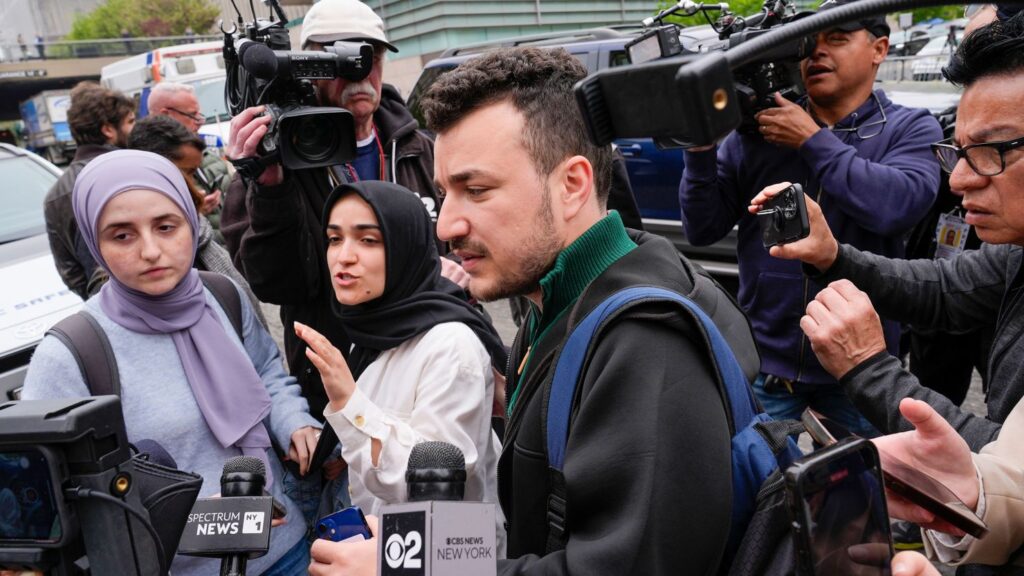
“This is not just about Mahmoud Khalil,” said civil rights attorney Joshua Reed Eakle. “This is about whether we, as a nation, still believe in the principles of democracy. If they can do this to a legal resident, what’s stopping them from doing it to a citizen?”
International organizations have also weighed in on the controversy. The United Nations condemned Khalil’s arrest, with a spokesperson for Secretary-General António Guterres emphasizing the importance of upholding fundamental rights. Meanwhile, human rights organizations have called on the U.S. government to immediately release Khalil and reaffirm its commitment to protecting free speech.
Conclusion
Mahmoud Khalil’s arrest has ignited a fierce debate about civil liberties, immigration policies, and the limits of free speech in the United States. His case has become a rallying cry for activists, lawyers, and politicians who fear that his detention is part of a larger crackdown on dissent.
With a federal judge temporarily halting his deportation, all eyes are now on the upcoming legal proceedings. The outcome of Khalil’s case could have far-reaching implications for activists and immigrants alike, determining whether the U.S. government can use immigration laws to suppress political opposition.
As protests continue to grow, one thing is clear: the fight for free speech and civil liberties is far from over.
You Might Also Like:
Dr. Rani, Research Scientist from America, Inspires Students at Whiz Kids Anantnag
NIT Srinagar Secures Spot in Times Higher Education World University Rankings 2025
Union Minister Mansukh Mandaviya Announces Plans to Make Gulmarg a Winter Sports Hub
